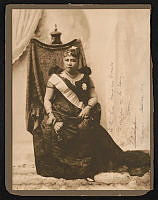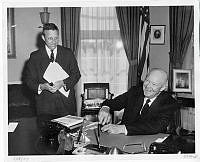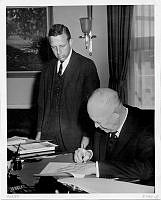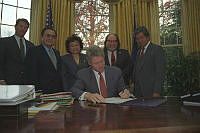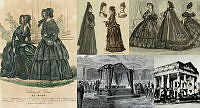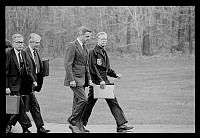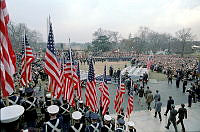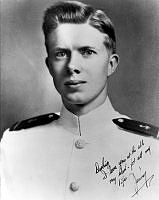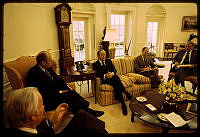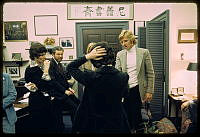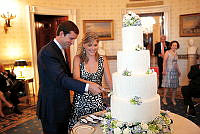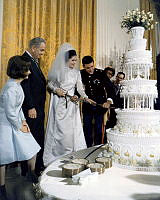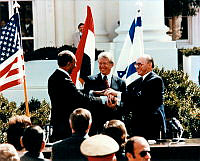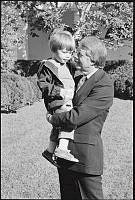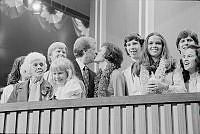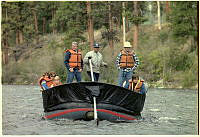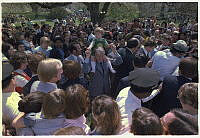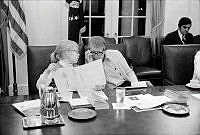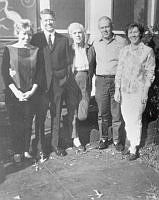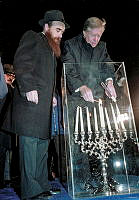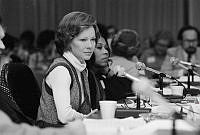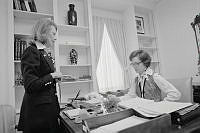Warren G. Harding

Before his nomination, Warren G. Harding declared, “America’s present need is not heroics, but healing; not nostrums, but normalcy; not revolution, but restoration; not agitation, but adjustment; not surgery, but serenity; not the dramatic, but the dispassionate; not the experiment, but equipoise; not submergence in internationality, but sustainment in triumphant nationality.”
A Democratic leader (and Woodrow Wilson’s son-in-law), William Gibbs McAdoo, called Harding’s speeches “an army of pompous phrases moving across the landscape in search of an idea.” Their very murkiness was effective, since Harding’s pronouncements remained unclear on the League of Nations, in contrast to the impassioned crusade of the Democratic ticket, Governor James M. Cox of Ohio and Franklin D. Roosevelt.
Thirty-one distinguished Republicans had signed a manifesto assuring voters that a vote for Harding was a vote for the League. But Harding interpreted his election as a mandate to stay out of the League of Nations.
Harding was born near Marion, Ohio in 1865. He maintained a lifelong connection to the town, purchasing and operating The Marion Daily Star newspaper from 1884 until 1923. He married Florence Kling De Wolfe on July 8, 1891 and the couple settled in Marion where they were active community members. In addition to operating the newspaper, Harding was a trustee of the Trinity Baptist Church and a leader in fraternal organizations and charitable enterprises. During Harding’s presidential run he launched a “front porch campaign,” showcasing his hometown and demonstrating that he was a man of the people.
Harding’s undeviating Republicanism and vibrant speaking voice, plus his willingness to let the machine bosses set policies, led him far in Ohio politics. He served in the state Senate and as lieutenant governor, and successfully ran for governor. He delivered the nominating address for President Taft at the 1912 Republican Convention. In 1914 he was elected to the Senate, which he found “a very pleasant place.”
An Ohio crony, Harry Daugherty, promoted Harding for the 1920 Republican nomination because, he later explained, “He looked like a president.” At the 1920 Republican convention when the principal candidates deadlocked, the party turned to Harding. He won the presidential election by 60 percent of the popular vote.
Republicans in Congress easily got the president’s signature on their bills. They eliminated wartime controls and slashed taxes, established a federal budget system, restored the high protective tariff, and imposed tight limitations upon immigration.
By 1923 the postwar depression seemed to be giving way to a new surge of prosperity, and newspapers hailed Harding as a wise statesman carrying out his campaign promise—“Less government in business and more business in government.”
Behind the facade, not all of Harding’s administration was so impressive. Harding’s secretary of the interior, Albert Bacon Fall, participated in the secret leasing of federal oil reserves, resulting in the Teapot Dome Scandal. When the incident came to light, Congress directed Harding to cancel the oil leases. Word began to reach the president that some of his friends were using their official positions for their own enrichment. Alarmed, he complained, “My...friends...they’re the ones that keep me walking the floors nights!”
Although Harding was not directly implicated in the scandal, looking wan and depressed, he journeyed westward in the summer of 1923, taking with him his upright secretary of commerce, Herbert Hoover. “If you knew of a great scandal in our administration,” he asked Hoover, “would you for the good of the country and the party expose it publicly or would you bury it?” Hoover urged publishing it, but Harding feared the political repercussions.
Harding did not live to find out how the public would react to the Teapot Dome scandals of his administration. In August 1923, he died in San Francisco. He suffered a fatal cardiovascular event, likely a heart attack.













